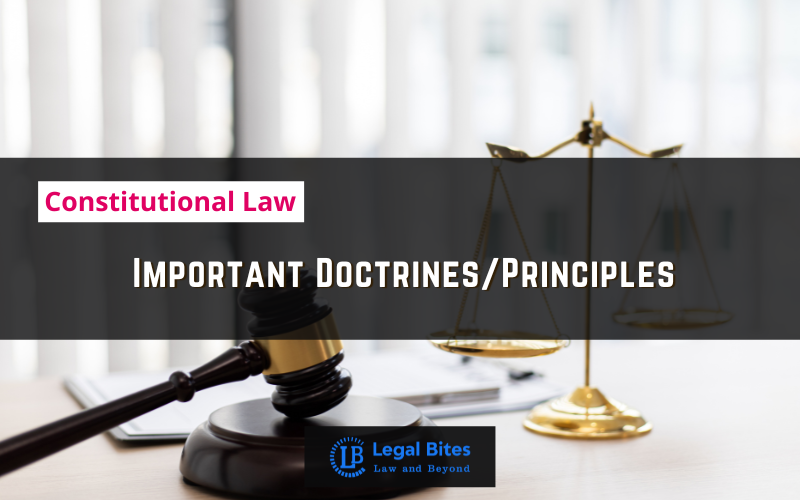Name any three Directive Principles of State Policy
Question: Name any three Directive Principles of State Policy. [RJS 1986] Find the answer to the mains question only on Legal Bites. [Name any three Directive Principles of State Policy.] Answer The Directive Principles of State Policy contained in Part IV of the Constitution sets out the aims and objectives to be taken up by the States in… Read More »
;
Question: Name any three Directive Principles of State Policy. [RJS 1986] Find the answer to the mains question only on Legal Bites. [Name any three Directive Principles of State Policy.] Answer The Directive Principles of State Policy contained in Part IV of the Constitution sets out the aims and objectives to be taken up by the States in the governance of the country. The idea of a welfare state envisaged by our constitution can only be achieved if the States endeavour to implement...
Question: Name any three Directive Principles of State Policy. [RJS 1986]
Find the answer to the mains question only on Legal Bites. [Name any three Directive Principles of State Policy.]
Answer
The Directive Principles of State Policy contained in Part IV of the Constitution sets out the aims and objectives to be taken up by the States in the governance of the country. The idea of a welfare state envisaged by our constitution can only be achieved if the States endeavour to implement them with a high sense of moral duty. They contain positive obligations of the State towards its citizens who are required to keep in mind the directive principles while they formulate and pass a law. Directive Principles of State Policy are mentioned from Article 37 to Article 51 of the Constitution.
The most significant of all the directives upon which a great deal of stress has been put is Article 39 which entrusts upon the State to ensure proper distribution of the material resources of the community to serve the common good. So far, as the distribution of agricultural land is concerned, the efforts of execution of Article 39 are evident.
The rise of the public sector undertakings and regulation of the private industries and businesses by the government can also be said to be an implementation of Article 39 by keeping a check on the upheaval in the monopolistic power of private industries. Almost every Indian state has abolished the jagirdari and zamindari laws and has made an effort to distribute the land.
The Apex court in the case of Randhir Singh v. State of UP [1982 SCR (3) 298, 306] invoked Article 39 (d) for adjudicating upon an issue that involved the issue of different pay-scales for drivers employed in different departments. The court noted that Article 14 and 16 in the light of the Preamble and Article 39(d), implies ‘Equal pay for Equal work’ to be applied to cases of unequal scales of pay based on no classification or irrational classification.
The second important directive principle is mentioned in Article 46, which provides for the promotion of the welfare of the weaker section of the society, particularly SCs and STs, complying to which, many Acts have been enacted with the intent to implement this directive. For instance, the Untouchability (Offences) Act, 1955 has been enforced to end the practice of untouchability and made it a criminal offense.
The next significant directive principle is laid down in Article 47 regarding public health and ensuring minimum standards of livelihood, specifically amongst the rural population, the Central government launched a community development initiative. Further, the directive pertaining to put a bar on intoxicating drinks and drugs which are injurious to health was brought to effect through an operation called the ‘Prohibition Enquiry Committee of Planning Commission’.
Important Mains Questions Series for Judiciary, APO & University Exams
- Constitutional Law Mains Questions Series Part-I
- Constitutional Law Mains Questions Series Part-I
- Constitutional Law Mains Questions Series Part-II
- Constitutional Law Mains Questions Series Part-IV
- Constitutional Law Mains Questions Series Part-V
- Constitutional Law Mains Questions Series Part-VI
- Constitutional Law Mains Questions Series Part-VII
- Constitutional Law Mains Questions Series Part-VIII
- Constitutional Law Mains Questions Series Part-IX
- Constitutional Law Mains Questions Series Part-X



